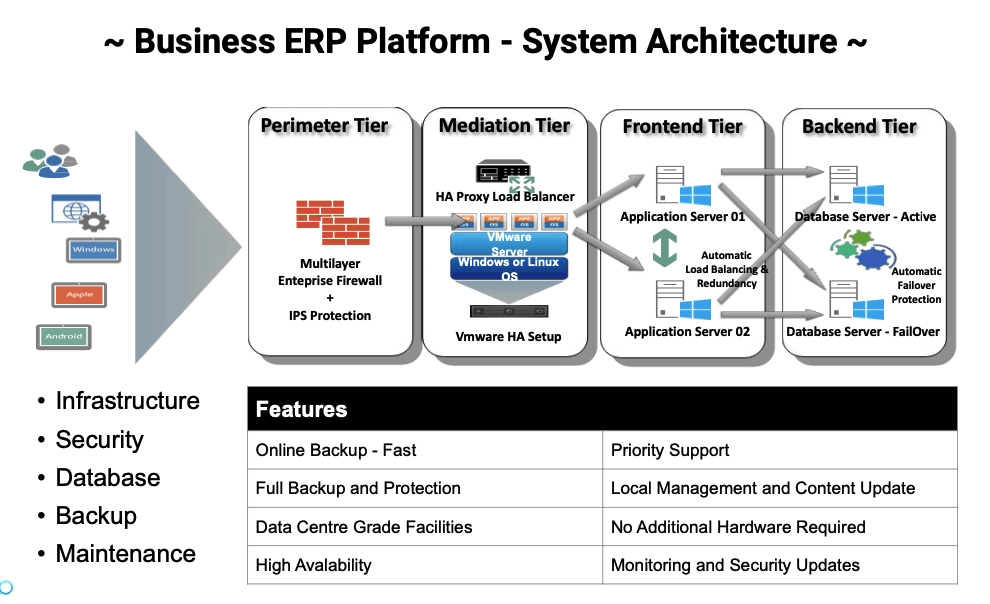
Business ERP Plaform
A Business ERP (Enterprise Resource Planning) platform is an integrated software system that helps organizations manage and automate core business processes in a centralized manner. This platform brings together various functions such as finance, human resources, supply chain, manufacturing, services, procurement, and others into a single unified system. The primary goal of an ERP platform is to improve efficiency, enhance data accuracy, streamline workflows, and support better decision-making across the organization.